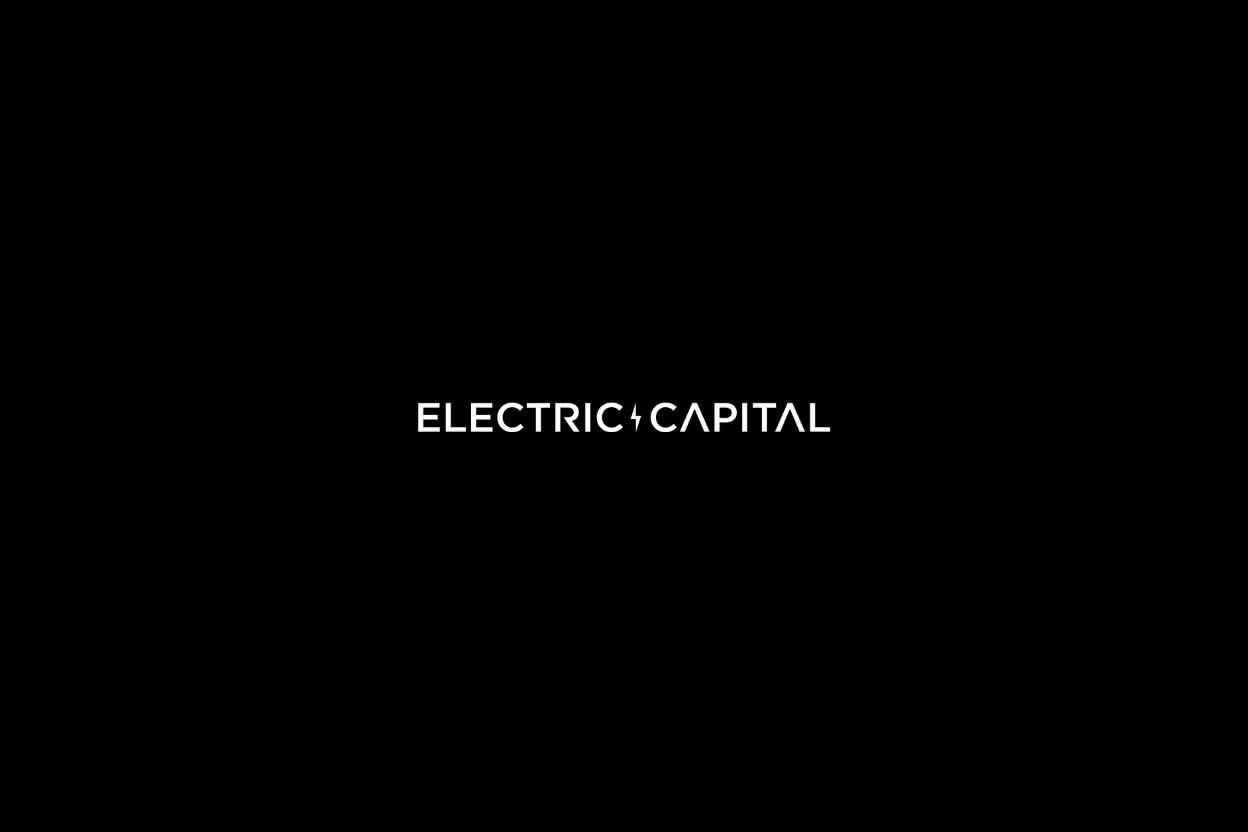Electric Capital is well-known in the crypto space for its thorough and careful approach to investing. Their due diligence process goes beyond the basics, focusing deeply on the technical, operational, and regulatory aspects unique to blockchain startups. For venture capitalists investing in high-risk crypto projects, their method offers a clear example of how to manage uncertainty and spot strong opportunities.
Due diligence in crypto is not just about numbers and charts; it’s about understanding the technology, the team, and the market environment in great detail. This post will highlight key lessons from Electric Capital’s practices that can help VCs and founders make smarter decisions in blockchain and web3 investments. By applying these insights, investors can better navigate risks and build lasting, successful portfolios in an unpredictable market.
Understanding Electric Capital’s Due Diligence Approach
Electric Capital’s due diligence process extends far beyond surface-level checks. For them, investing in crypto startups means closely examining each project’s core elements — technology, team, market dynamics, and token economics — to understand real potential and risks. This approach explains why they often spot projects with strong technical foundations and community support before many others. Let’s break down their four key areas of evaluation.
Technical and Product Evaluation
Electric Capital treats technology as the backbone of any crypto investment. Instead of relying solely on marketing or broad claims, they conduct a detailed inspection of the startup’s codebase and protocol design. This includes:
- Smart contract security audits: Ensuring the contracts are free from vulnerabilities and have strong cryptographic integrity.
- Blockchain architecture review: Looking at consensus algorithms, data availability, and network security to gauge robustness.
- Innovation assessment: Identifying fresh approaches or improvements over existing solutions that justify the project’s creation.
They also evaluate whether the product can scale effectively to handle user growth and transaction volume without major slowdowns or excessive costs. Beyond the tech, Electric Capital asks if the product has clear real-world use cases that can drive adoption. Scalability alone doesn’t guarantee success; utility matters just as much.
Team and Leadership Assessment
For Electric Capital, the people behind a project are just as important as the code. They prioritize teams with deep crypto-native experience who clearly understand blockchain’s nuances. Their method includes:
- Evaluating developer credibility: Reviewing public contributions, prior projects, and the team’s technical expertise.
- Leadership qualities: Assessing founders’ strategic vision, execution track record, and problem-solving skills.
- Community engagement: Observing how teams interact with users and whether they foster a supportive ecosystem.
Electric Capital goes beyond resumes. They conduct reference checks and study the founders’ histories in previous web3 projects, looking for consistency and reliability. This thorough vetting helps separate hype from genuine capability.
Market and Competitive Analysis
No project exists in isolation, and Electric Capital treats market context seriously. They analyze:
- Total addressable market (TAM): How big is the opportunity and is it growing?
- Competitive landscape: Identifying direct competitors and differentiators.
- Product-market fit: Does the product effectively solve a real problem or meet a clear demand?
Community factors also play a major role. They closely track the size and engagement of the user base and associated networks. Strong, active communities often signal sustained interest and better chances of long-term growth.
Tokenomics and On-Chain Metrics
Finally, Electric Capital carefully studies the project’s token model and blockchain data, using this as a snapshot of health and sustainability. Their focus areas include:
- Token distribution: Ensuring tokens are fairly allocated among users, founders, and investors to avoid centralization risks.
- Utility and governance: Whether the token serves real functions such as staking, voting, or incentives.
- Decentralization: Measuring how power and control are spread across participants.
- On-chain activity: Using data points like number of active wallets, transaction volumes, and value locked in protocols to validate usage trends.
They also look at incentives within the token system to make sure they align with long-term network growth rather than short-term speculation.
This level of detail in tokenomics and on-chain data prevents Electric Capital from relying blindly on superficial metrics. It roots investment decisions in quantifiable blockchain realities.
By applying this structured, multi-dimensional due diligence, Electric Capital gains a clearer picture of startups beyond price charts or buzz. Their approach spotlights projects with genuine technical strength, credible teams, meaningful market fit, and sound token economies — all critical ingredients for lasting success in crypto investing.
Key Takeaways for VCs from Electric Capital’s Process
Electric Capital sets a high standard in crypto investing by combining traditional venture capital diligence with detailed checks tailored to blockchain’s unique challenges. Their process reveals key lessons for any VC looking to thrive in this sector. These lessons go beyond a checklist to a mindset that balances technical scrutiny with data, team quality, and compliance. Here’s what stands out.
Integrate Crypto-Specific Metrics Alongside Traditional Ones
VCs know the value of financial and operational KPIs, but crypto demands an added layer: on-chain analytics. Electric Capital pairs traditional due diligence with blockchain-specific data like active wallet counts, transaction volumes, token distribution, and governance participation. These metrics reveal how well a network or project functions in practice, not just in pitch decks.
- On-chain data offers real-time market validation rather than relying on projections.
- Token velocity and staking ratios show user commitment and token utility.
- Developer activity measured by code commits and open-source contributions is an early indicator of project health and innovation.
This combined approach helps separate signal from noise, answering questions like: Are users truly engaging? Is the tokenomics sustainable, or just hype? Traditional diligence alone won’t catch issues buried deep in blockchain data.
Prioritize Founders with Proven Crypto Expertise
Experience with startups is important, but Electric Capital looks closely at crypto-native knowledge. The best founders understand blockchain’s nuances — from protocol design to community dynamics and regulatory challenges.
- They have a track record in cryptography, protocol development, or meaningful crypto contributions.
- Reputations within developer communities and among peers often speak louder than polished resumes.
- Deep crypto expertise enables founders to anticipate technical hurdles and navigate evolving compliance environments.
Choosing founders without this background risks missing critical insight into how decentralized technologies operate at a fundamental level.
Use Data Rooms and Technology to Streamline Due Diligence
Electric Capital embraces tools that keep diligence secure and efficient. Virtual data rooms let founders share sensitive documents with confidence. Meanwhile, technology automates parts of the process:
- Analytics platforms verify token distribution schedules, supply caps, and historical on-chain transactions.
- Sentiment analysis and community health trackers monitor social engagement and governance discussions.
- Automated code scans detect security vulnerabilities early.
These tools minimize manual errors and speed up verification, freeing VCs to focus on strategic risk assessment and relationship-building.
Incorporate Legal and Regulatory Checks Early
Crypto investing comes with its own legal landscape that VCs cannot afford to overlook. Electric Capital involves legal experts early to review compliance around:
- Securities laws, ensuring tokens aren’t classified as unregistered securities.
- Anti-Money Laundering (AML) and Know Your Customer (KYC) regulations.
- Intellectual property rights on code and trademarks.
Early legal alignment mitigates costly risks later. It also helps startups prepare for inevitable regulatory scrutiny, particularly important as governments worldwide tighten rules.
By prioritizing these legal steps upfront, VCs protect their investments and signal professionalism to founders and regulators alike.
These takeaways from Electric Capital’s due diligence shine a light on how VCs can improve decision-making for crypto startups. The pathway involves blending traditional investment wisdom with blockchain’s specific demands through data, expertise, technology, and compliance — all essential to building a resilient crypto portfolio.
How Founders Can Prepare for Rigorous VC Due Diligence
When venture capitalists dive deep into a crypto startup, the due diligence process can be intense and detailed. Founders who walk into this process prepared stand out because they remove doubt and build confidence. The goal isn’t just to have answers but to provide clear, organized evidence that tells a transparent story about the project’s potential. Here’s how founders can get ready to meet the rigorous standards set by thoughtful investors like Electric Capital.
Organize Transparent and Detailed Documentation
VCs expect easy access to key information that paints a full picture of the project. Organizing this documentation upfront saves time and signals professionalism. You should prepare:
- Technical documentation: Clear whitepapers, architecture diagrams, smart contract details, and audit reports. This shows your technology is solid and well thought out.
- Team bios: Include concise backgrounds of key team members, highlighting crypto-specific experience and roles. Add links to public code contributions or previous projects.
- Tokenomics details: Share token distribution plans, supply schedules, lockup periods, and use cases. Be ready to explain incentives and governance rights clearly.
- Legal compliance records: Maintain copies of incorporation, IP ownership, KYC/AML procedures, and any regulatory filings. Documentation should demonstrate you understand and respect local and international legal rules.
Think of this as your project’s storybook for investors—make it clear, factual, and organized. It’s easier to trust what they can verify quickly.
Demonstrate Strong Community and On-Chain Metrics
Proof of real user engagement matters more than hype in crypto. Investors want to see data that shows your network is alive and growing:
- Track active wallets over time to show consistent user participation.
- Present transaction volumes that reflect usage, not just token transfers for speculation.
- Highlight Total Value Locked (TVL) if applicable, which shows financial commitment to your protocol.
- Include engagement metrics from social channels and governance forums to highlight an involved community.
Strong on-chain data acts like a pulse check on your project’s health. Founders who maintain updated dashboards or analytic reports can answer, “How do I know this is real and not just smoke?”
Showcase Team’s Crypto Credibility and Execution Capacity
Investors bet on people as much as ideas. Your team’s background speaks volumes:
- Highlight past contributions to public crypto projects, open-source code, or respected protocols.
- Showcase technical skills relevant to blockchain — smart contract development, cryptography, consensus algorithms.
- Emphasize leadership and operational experience, including successful product launches or scaling efforts.
- Provide references or endorsements from well-known figures in the crypto ecosystem to reinforce credibility.
A strong crypto-native team inspires confidence that you can execute and adapt in this complex space. It’s about showing you understand blockchain deeply — not just building on it.
Prepare for Legal and Regulatory Questions
Regulatory clarity can make or break a deal. Work closely with legal counsel to understand where your project stands and what risks exist. Key areas to prepare for:
- Jurisdiction-specific compliance — what laws apply where your company and user base are located?
- Token classification — are your tokens securities or utility tokens? How have you structured them legally?
- Governance models — how decentralized and transparent is decision-making? What protections exist for token holders?
- Data privacy and AML/KYC protocols — explain your procedures and compliance status.
Being ready to discuss these matters clearly prevents surprises later. It signals that you take legal responsibilities seriously, which is essential for attracting trusted capital.
By preparing detailed documents, presenting strong data, proving your team’s expertise, and anticipating legal questions, founders reduce friction during VC due diligence. This comprehensive readiness shows you respect the vetting process and positions your startup as a serious contender for investment.
Addressing Common Questions VCs Have About Crypto Investments
When venture capitalists consider crypto projects, they face questions that reach beyond typical startup checks. Crypto’s unique mechanics, technology, and market behavior create challenges demanding deeper insight. Electric Capital’s due diligence process offers a model that tackles these critical queries methodically.
This section breaks down three common questions many VCs ask during crypto investment evaluation. Understanding these points helps investors and founders align and focus on what truly matters in building trust and evaluating projects effectively.
What Makes a Crypto Founder Stand Out to VCs?
In crypto investing, the founder’s profile extends beyond conventional startup credentials like business schooling or previous exit history. What really grabs VCs’ attention are qualities and backgrounds showing native crypto expertise and hands-on tech leadership.
Fundamental traits include:
- Deep technical knowledge of blockchain protocols, cryptography, and smart contract development. This shows they understand the mechanics and risks behind the product.
- Community involvement in open-source projects, governance forums, or developer ecosystems signals credibility and a genuine commitment to the crypto space.
- Clear vision tied to mission-driven goals, not just profit. Investors want founders who are motivated by solving real problems with blockchain, not jumping on trends.
- Experience navigating regulatory environments and compliance challenges helps reduce legal surprises down the road.
VCs also value founders who communicate clearly and transparently about obstacles and progress. Trust builds when founders reveal their problem-solving skills and adaptability inside this fast-moving, uncertain sector. This combination of hard skills, reputational standing, and mindset often separates founders who secure funding in crypto from those who don’t.
How Do Tokenomics Impact Investment Decisions?
Tokenomics is not just a buzzword—it’s a cornerstone of crypto project viability. Venture capitalists assess token distribution, incentives, and governance structures closely because these elements greatly affect long-term sustainability and economic value.
Here’s what VCs look for in tokenomics:
- Token distribution fairness to avoid concentration risks. If a handful of insiders control too large a share, network security and decision-making power might be compromised.
- Incentive alignment ensuring stakeholders — users, developers, investors — benefit from growing the ecosystem. Token utility (staking, fees, rewards) should support ongoing engagement and adoption.
- Governance mechanisms that offer token holders meaningful influence without compromising efficiency. Good governance balances decentralization and practical decision-making.
- Supply dynamics and inflation control because unchecked issuance or dumping risks destroying token value and investor returns.
Without sound tokenomics, a project may attract speculative hype but fail to create lasting community or value. VCs therefore dig into these models with thorough analysis or specialist advisors to judge the real worth and growth potential.
What On-Chain Metrics Are Most Reliable for Due Diligence?
On-chain data offers an objective lens into how a project actually performs, beyond whitepapers or social media claims. Savvy VCs prioritize certain blockchain metrics as indicators of health and momentum:
- Active wallet counts and unique addresses measure genuine user interest and sticky engagement, rather than inflated numbers from bots or speculators.
- Transaction volume and velocity reflect real economic activity on the network. Higher meaningful transactions often correlate to product adoption.
- Total Value Locked (TVL) for DeFi protocols signals capital commitment and trust in smart contracts. Rising TVL generally points to growth potential.
- GitHub commits and developer activity show if the project is actively improving or innovating its codebase.
- Token holder concentration and transfer patterns reveal risks like potential pump-and-dump or control by whales.
By combining these metrics, investors gather a nuanced picture. They avoid chasing artificial growth and instead focus on sustainable ecosystem development. Tracking on-chain stats regularly also uncovers early warning signs, guiding investment timing and risk assessment.
These core questions touch on the essence of why Electric Capital’s diligence stands out: a focus on founder quality, fundamental token economics, and solid data signals that go beyond hype and surface-level assumptions. By addressing these areas well, VCs can improve their odds of backing projects with real staying power in crypto’s fast-evolving landscape.
Conclusion
Electric Capital’s due diligence approach offers a strong example for VCs investing in blockchain startups. Their careful focus on technical depth, team expertise, market context, tokenomics, and legal compliance shows how combining traditional VC methods with crypto-specific checks leads to better investment decisions.
VCs looking to improve their crypto portfolios should incorporate on-chain data, verify founders’ crypto backgrounds, use technology for efficiency, and address regulatory challenges early. Founders who prepare transparent documents, demonstrate real user engagement, and clarify legal standing will attract serious investors who value this rigor.
As the crypto sector continues to mature, due diligence strategies will need to adapt alongside new technologies and regulations. Embracing these lessons today sets the foundation for smarter, more sustainable investments in blockchain’s future.






